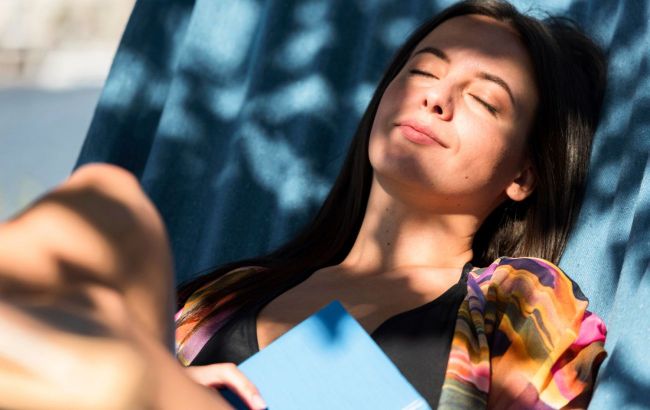Dermatologist explains why people get fatigued after sun exposure
 Why people get fatigued after sun exposure (photo: Freepik)
Why people get fatigued after sun exposure (photo: Freepik)
It is common to feel drowsy and generally tired while relaxing by the pool or on the beach. Exposure to the sun leads to even more fatigue than before. As it turns out, you need to know how to spend time in the sun safely.
Why people get tired in the sun
Dermatologist Heather Rogers said that the sun causes several changes that lead to the body having to work harder, which leads to fatigue.
In particular, the body works hard to regulate its temperature.
Pediatrician Patrick Mularoni said that even if you are lying down by the pool, the body is constantly working to bring your temperature down to a normal level when you are outside in the heat.
There are three things that the body does to try to cool down: you breathe faster, your heartbeat speeds up, and you sweat more. All of this requires additional energy from the body, which leads to fatigue.
“In extreme cases, when our body cannot cool itself effectively, people can develop hyperthermia or overheating-related injuries and diseases,” the doctor added.
Heat exhaustion includes symptoms such as fatigue, dizziness, nausea, and headache. If left untreated, heat exhaustion can lead to heat stroke, which is the most serious heat-related illness and requires emergency medical care.
In addition, when the body is exposed to ultraviolet light, the body has to fight and repair cellular damage, which can lead to fatigue.
What happens when the sun damages the skin
The redness from a sunburn occurs because the blood vessels in the area dilate to deliver oxygen and nutrients to help with the recovery process.
The body loses water faster in the sun, which leads to dehydration.
Drinking alcoholic and caffeinated beverages can further disrupt your water balance.
When you spend time by the pool or on the beach, it can be an opportunity to slow down and relax from stress.
In fact, sun exposure can be very beneficial for you - if you do it in the right way. For example, the sun helps the body produce vitamin D, which is key to the immune system and bone health. Sunlight also increases serotonin in the brain and improves mood.
The problem is that people don't protect their skin properly.
Use a sunscreen labeled broad spectrum (protects against both UVA and UVB radiation) and SPF 30 or higher. When you are outside, reapply every two hours or after swimming or sweating.
In addition to sunscreen, you should wear protective clothing, glasses, and hats.
From about 10 am to 2 pm, the UV index is high. This is the time when the sun can cause the most damage to the skin. In addition, you shouldn't lie in the sun just to get a tan, as this can damage your skin.
Earlier we reported why sunscreen is so expensive and what is the difference between cheap and high-quality SPF.
Read also about a common mistake when using sunscreen.
This material is for informational purposes only and should not be used for medical diagnosis or self-treatment. Our goal is to provide readers with accurate information about symptoms, causes, and methods of detecting diseases. RBС-Ukraine is not responsible for any diagnoses that readers may make based on materials from the resource. We do not recommend self-treatment and advise consulting a doctor in case of any health concerns.

